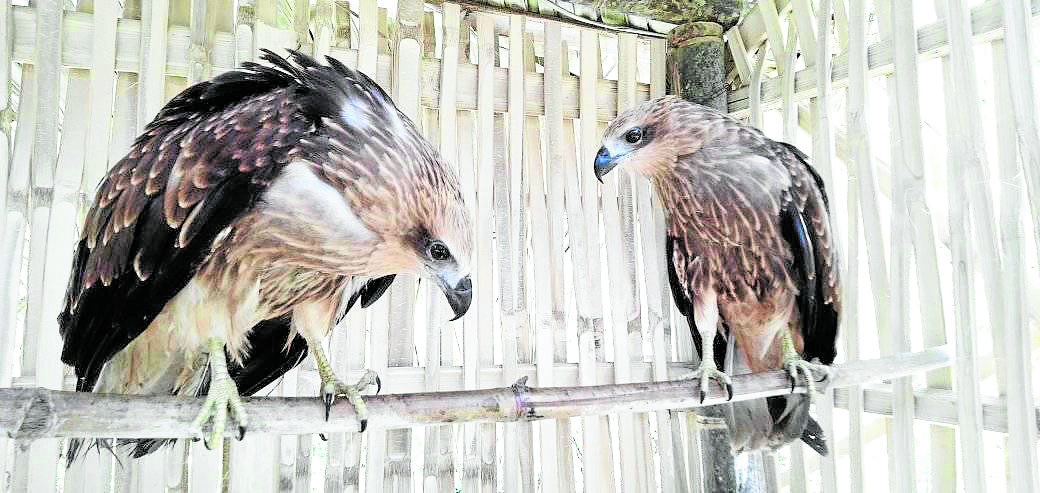
RESCUED Wildlife enforcers rescued two juvenile Brahminy kites in Mabini, Batangas. The Biodiversity Management Bureau said it has recorded sightings of endangered raptors during the virus lockdown. Photo contributed by BMB-DENR
SAN PABLO CITY—More sightings of endangered wildlife, particularly raptors, have been recorded by the Biodiversity Management Bureau (BMB) amid restrictions on human activity and movement in communities on lockdown due to the coronavirus pandemic.
Extreme heat has also forced these animals to leave their natural habitat and find their way into human settlements, said Rogelio Demelletes Jr., the BMB senior ecosystems management specialist.
The public should seek out authorities when they encounter these rare birds, he said, pointing out that illegal traders were also exploiting the pandemic, dangling easy cash in exchange for the wildlife.
“We have a [skeleton] force operating during the lockdown. We could send a team for [the animal rescue],” Demelletes said on Monday.
The BMB has received at least five reports of raptors being sighted in the provinces of Cavite, Rizal and Batangas, and in the Visayas over a month since these areas were placed under a community quarantine.
‘Human imprint’
The latest animals it rescued were two juvenile Brahminy kites (Haliastur indus) in Mabini, Batangas, on Sunday. Residents found the raptors in a forested area in Barangay Sto. Tomas about a week ago, according to Demelletes.
“They tried to release [the raptors], but the birds kept coming back. Our veterinarian’s assessment was that they already have a ‘human imprint,’ meaning they have been tamed,” he said.
The raptors were turned over for rehabilitation to the rescue center of the BMB, an agency under the Department of Environment and Natural Resources.
“Once it has lost its wildlife instinct, it will find it hard to look for food and water, and survive in the wild. The bird has to be quarantined from any human interaction before it is released,” Demelletes said.
He said that before the residents turned over the raptors, someone from an online group called Batangas Exotic Keepers contacted them and offered to buy the birds for P15,000 apiece.
‘In exchange for liquor’
The online group has been among the BMB’s targets for illegal wildlife trade.
In Antipolo City, Rizal province, the bureau also received a report of a Philippine scops owl (Otus megalotis) taken down with a slingshot about two weeks ago. The tipster told wildlife enforcers that the bird was put on sale, not for cash, but “in exchange for liquor.”
The Brahminy kite population is described to be decreasing, while the scops owl is listed under the “least concern” conservation status by the International Union for Conservation of Nature’s Red List of Threatened Species.

